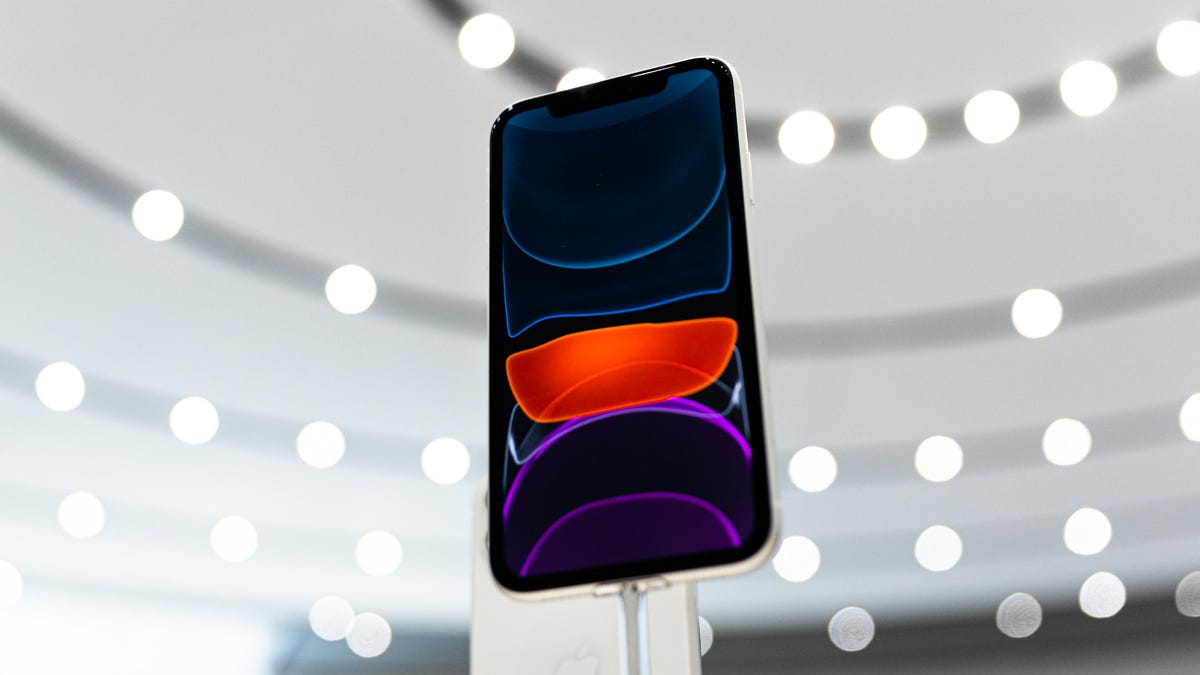Your new iPhone 11 doesn't have 5G, but you shouldn't care
Commentary: Analysts say a lack of 5G could hurt iPhone sales in 2019, but Apple's reputation won't feel the brunt for long.

The iPhone 11 channels 4G speeds this year.
You won't see 5G on the iPhone 11, 11 Pro or any Apple iPhone until at least 2020. That's because Apple and Qualcomm , which were until recently locked in a bracing legal battle, have kissed and made up, making a 5G iPhone possible -- if a little late. Other Android phone makers, from Samsung to the lesser-known OnePlus, are hitching their wagons to 5G data speeds ( Verizon even rushed its first network launch in order to be the world's first consumer available service). But for most buyers, it'll hardly make a difference.
5G describes the next-generation data network that wireless carriers and handset makers have already begun to use. This technology promises to supercharge phone speeds from anywhere between 10 and 100 times today's fastest 4G speeds, letting you download and upload large volumes of content in a fraction of the time. (Its uses extend beyond phones, too.)
One day, 5G will become the new standard for data speeds, but for now, growth is slow and the coverage sporadic and limited. While Samsung says it already sold 2 million 5G phones, roadblocks litter the way between early adoption and mass use.
Which is why when 5G was a no-show at Apple's big unveiling on Tuesday, it wasn't that big a deal. Here's why Apple's delay to 5G may not drastically hurt the iPhone's reputation.
Apple did not respond to a request for comment.
Apple fans will buy the iPhone anyway
iPhone sales could falter without 5G as one of its features, IDC predicts, but if Apple has proven one thing over the years, it's that the staunchest of fans remain undeterred (however, some appear to be switching).
Although phone sales are softening for the industry as a whole, Apple has been able to keep the iPhone's cult mystique alive, and people who have waited three to four years to upgrade probably aren't going to wait.
(Here's how the iPhone 11 Pro compares to the Note 10.)
5G isn't everywhere you want it to be yet
We tested 5G networks all over the world, from London to Sydney to LA. Even in the best circumstances, faster 5G speeds worked within one neighborhood, or perhaps the city center. In the worst, we saw incredibly high fast speeds one intersection at a time, and only outdoors, with 5G frequently falling back to 4G.
5G carrier networks are a work in progress that wireless providers are improving every day. But if you can't reliably tap into ultrafast speeds wherever you are, then 5G doesn't hold much meaning beyond bragging rights against your 4G neighbor.
SK Telecom's peak speeds in our downtown Seoul tests.
You won't have to pay a 5G premium on your bill
It isn't just the parts that make 5G phones expensive. Your monthly 5G data plan is also expected to cost you.
Verizon temporarily waived its initial $10 monthly surcharge, and there's hope that at least some networks worldwide are bundling 5G pricing into a package deal. Yes as much as we want 5G to be free -- or at least included in the phones' price -- you should at the very least expect to pay for an unlimited data plan.
So even if you're spending a small fortune on that iPhone 11 Pro Max with 512 gigabytes of storage, at least you won't pay that monthly 5G fee.
(Here's how to choose the best US 5G carrier.)
The Samsung A90 5G is one of four 5G phones for Apple's arch rival.
5G network technology is a tangled mess
The way smartphones tap into 5G networks -- a least early on -- is convoluted.
Phones need to have a 5G-capable chip and a matching 5G modem to connect to the network (right now they're separate, and that takes up space). And each phone model only works with a specific network's bands, so you can't take your 5G phone from one carrier to another.
Soon, though, new chips are coming that will combine the parts into a smaller package that could make 5G phones thinner and cheaper. And multimodal modems will mean that a single phone could potentially hop networks.
By waiting longer for the technology to mature, Apple sidesteps this early tangle of which phone works in which place when. It's just the latest example of the company swooping in late with a polished version of technology pioneered by its Android rivals.
Hey, you got better battery life instead
5G doesn't only cost money. In the phones we've tested, using the very fastest 5G technology, called millimeter wave, can chew through your phone's battery as well, especially in hot weather.
But longer battery life is one theme of this year's iPhone 11 haul. The most entry-level model among them is designed to last up to an hour longer than last year's iPhone XR , with the 11 Pro and 11 Pro Max set to run up to four and five hours longer than the iPhone XS and XS Max , respectively.
Perhaps by the time the first 5G iPhone comes along, the choice won't be as blunt.
Originally published last week.

